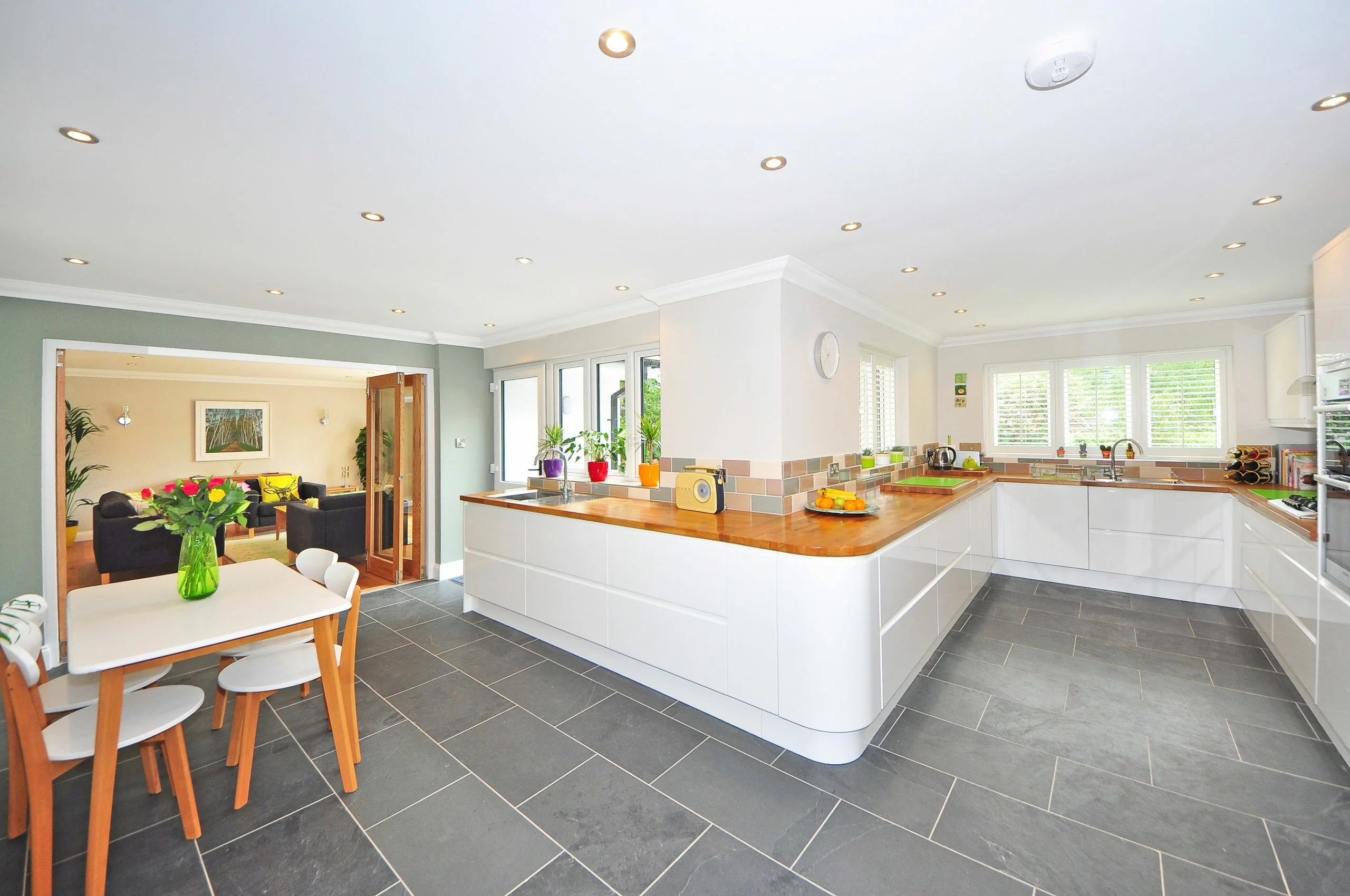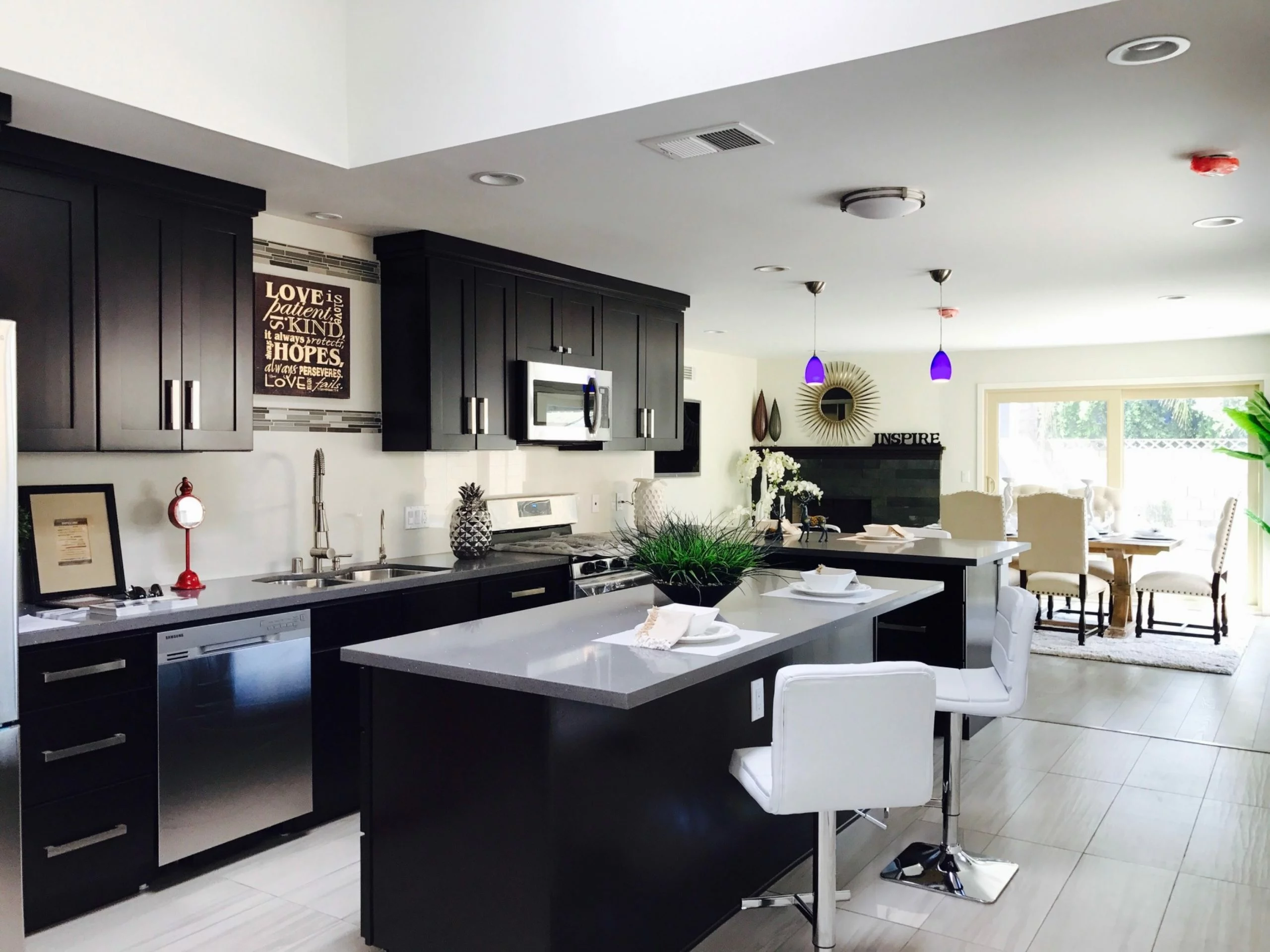Knocking through the wall between your kitchen and dining room can create an open-plan living space. But how much does it cost? Here’s what you need to know about the average price to knock through in the UK. Credit: Kitchen Warehouse However, the total cost can range from £2,000 to £6,000 depending on the complexity of the job. Factors like location, structural work needed, and alterations to plumbing/electrics can all impact the final price. While knocking through is a significant investment, it may be more affordable than a full kitchen extension. Carefully consider the cost versus the benefits of a more open-plan space. In our experience, knocking through from the kitchen to the dining room can completely transform the living space. While it is one of the more expensive renovations, an open-plan kitchen diner adds significant value and creates a light, sociable environment for years to come. Get quotes from reputable builders to ensure you get quality workmanship for the best price. Consider any structural changes needed and budget accordingly. Knocking through the kitchen and dining room wall in the UK can cost between £1,250-£1,750 on average. However, prices can range from £2,000 to £6,000 depending on: Hiring a structural engineer for the project can cost approximately £500. This is because knocking through the kitchen and dining room walls involves additional risks such as: Creating an open-plan space through this process can cost a few thousand pounds. But add around £12,000 for structural and building work, and £3,200 for plumbing. While the cost can be significant, it is often more affordable than other renovation projects. Ultimately, the decision to knock through the kitchen wall should consider the cost and the desire for more open space. Credit: Kitchen Warehouse Several key factors influence the cost of knocking through between the kitchen and dining room: Getting quotes from several builders provides a clearer picture of potential costs. Ask about their experience with knock-through projects to find the best fit. Understanding these key factors helps set realistic expectations when budgeting to open up your kitchen space. Knocking down a load-bearing wall that supports the structure above requires careful planning. This specialist work costs more than removing a non-load-bearing partition. The exact price depends on: A structural engineer’s approval of calculations and building regulations also bumps up the budget. Expect to pay £3,000-£5,000 for a small load-bearing wall removal. Larger projects with steels and underpinning quickly spiral to £10,000+. Get quotes from structural engineers and builders with experience tackling load-bearing works. Their expertise ensures the knock-through is structurally sound and compliant. An open-plan kitchen diner creates a spacious, sociable living area. But this luxury comes at a price. Here’s how costs compare: Knocking through to an existing room costs less than building an extension. You’ll pay more for structural work to remove load-bearing walls. Extensions require foundations, roofing and electrics. Yet they give you more space to expand your kitchen vision. On average, expect to pay: Get quotes to compare installation costs. Your location, house type and layout affect pricing. Knocking through from your kitchen to a dining room can maximise your living space. But it comes at a price. Here are 5 tips to lower your costs: Preparation is key. Draw up plans and get council approval before hiring tradespeople. This will help avoid costly delays or reworking. Knocking through the wall between a kitchen and dining room typically costs between £1,250-£1,750 on average. However, prices can range from £2,000 to £6,000 depending on the complexity of the job and your location. Converting a kitchen into an open-plan kitchen diner costs around £3,000-£5,000 on average. This includes knocking through the wall, any structural work, and new kitchen fittings and appliances. Total costs can be £10,000+ for high-end renovations. Knocking through to create an open-plan kitchen diner can make the space feel larger and brighter. It creates a more sociable environment for cooking and entertaining. Consider any potential loss of wall storage space. Also factor in the costs, which can be £1,250-£6,000 depending on the work required. The cost of removing a wall between a kitchen and dining room in the UK averages between £1,250-£1,750. This covers labour and materials for knocking down the wall. Additional building work such as installing steel beams can add £2,000-£4,000. Plumbing alterations may cost around £500-£1,000 extra. Knocking through the kitchen and dining room wall in the UK can cost between £1,250-£1,750 on average. However, prices can range from £2,000 to £6,000 depending on the complexity of the job and your location. Hiring a structural engineer for the project can cost approximately £500. This is because knocking through the kitchen and dining room walls involves additional risks such as pipework, plumbing, and electrics. Creating an open-plan space through this process can cost a few thousand pounds but add around £12,000 for structural and building work, and £3,200 for plumbing. While the cost can be significant, it is often more affordable than other renovation projects. Ultimately, the decision to knock through the kitchen wall should consider the cost and the desire for more open space.
How Much to Knock Through Kitchen Diner?

Key Points
Our Opinion
How Much Does It Cost to Knock Through a Kitchen Diner?
Factors That Affect Knock-Through Costs

Removing a Load-Bearing Wall Cost
Open-Plan Kitchen Cost Comparison
5 Tips to Reduce Your Knock-Through Costs
FAQ
How much does it cost to knock through the kitchen to the dining room?
How much does it cost to convert a kitchen diner?
Should I knock through the kitchen diner?
How much can a wall between the kitchen and dining room in the UK be knocked down?
Conclusion
